Aleta
Ocracoke's Lifeline
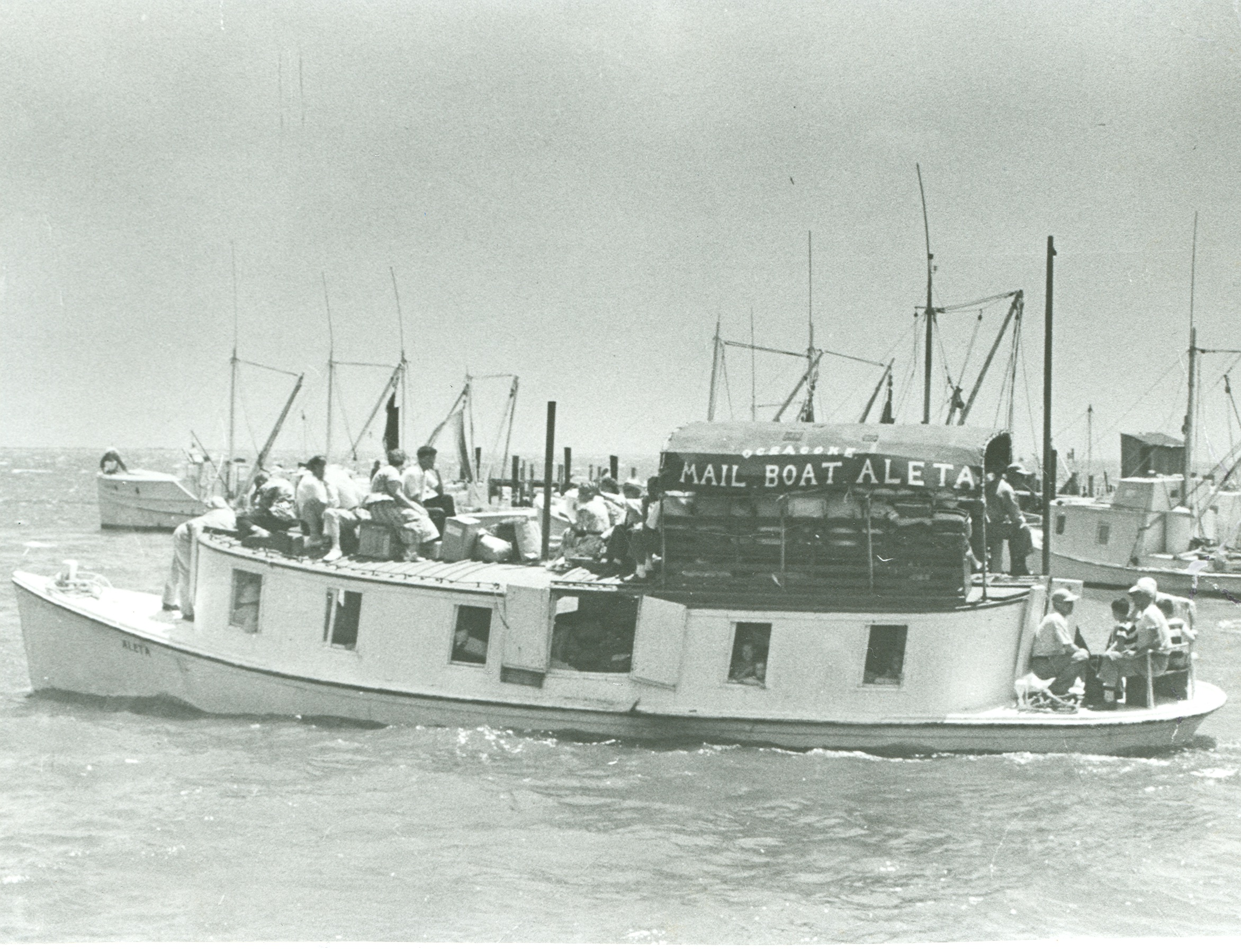
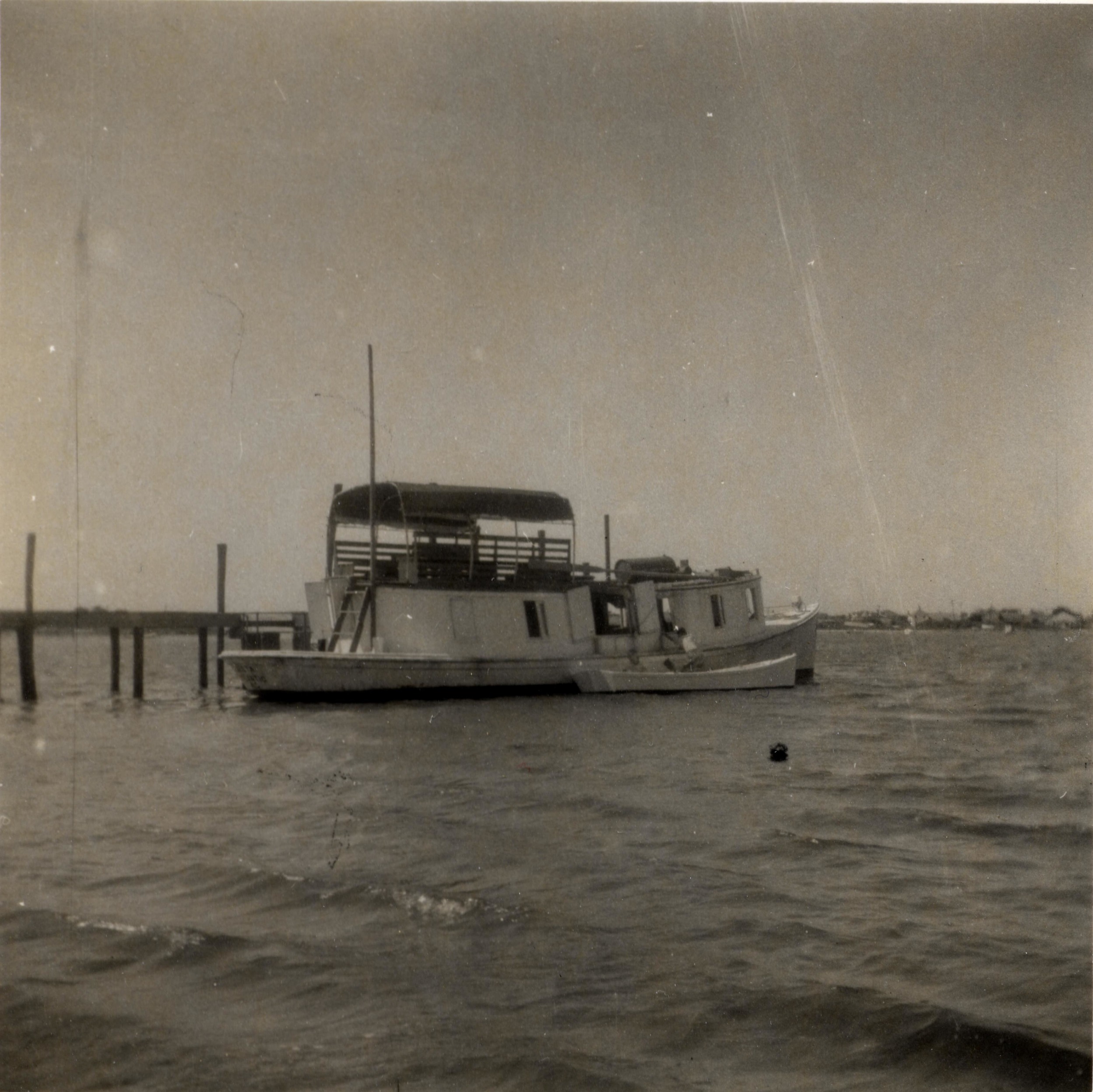
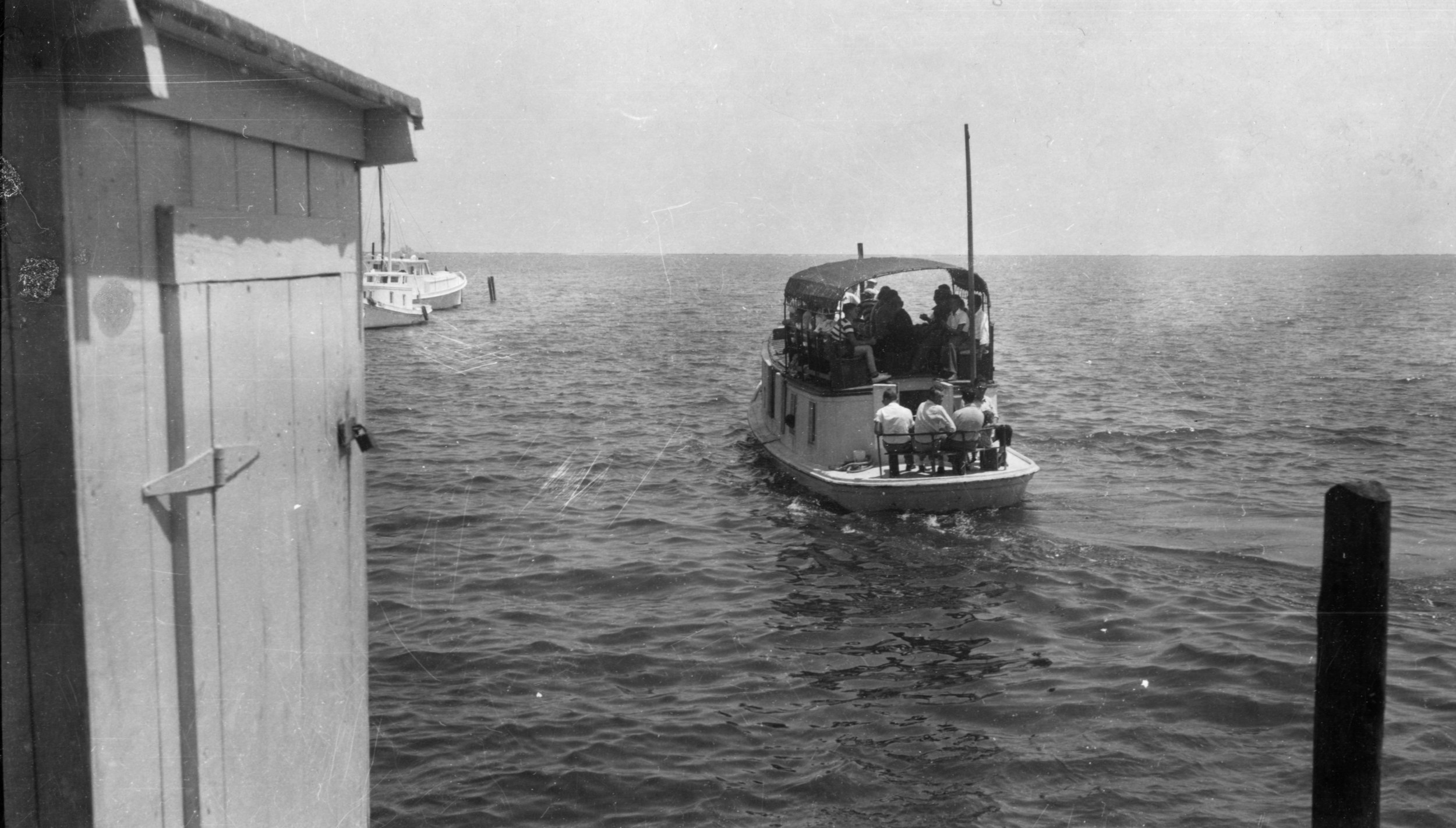
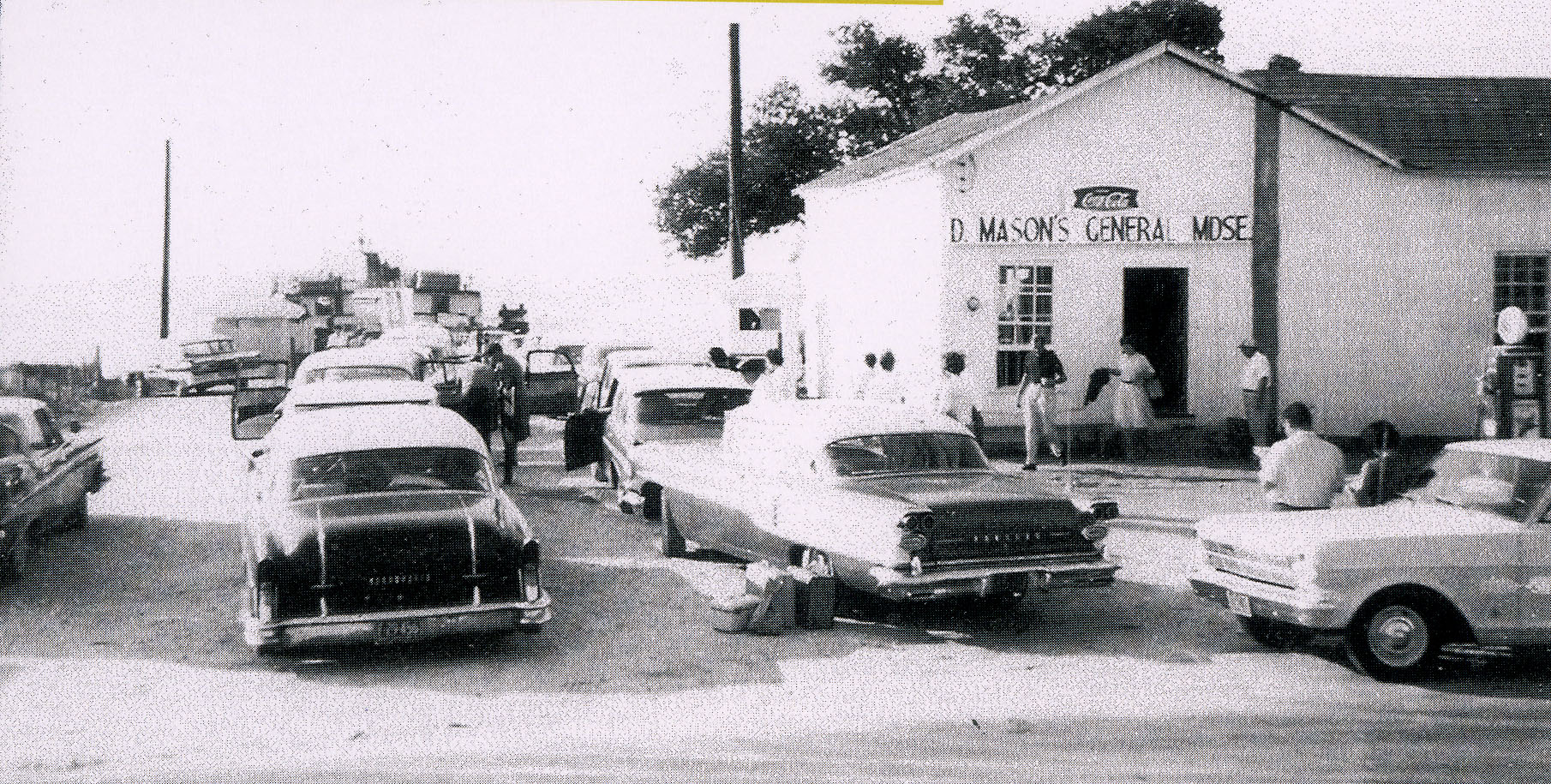
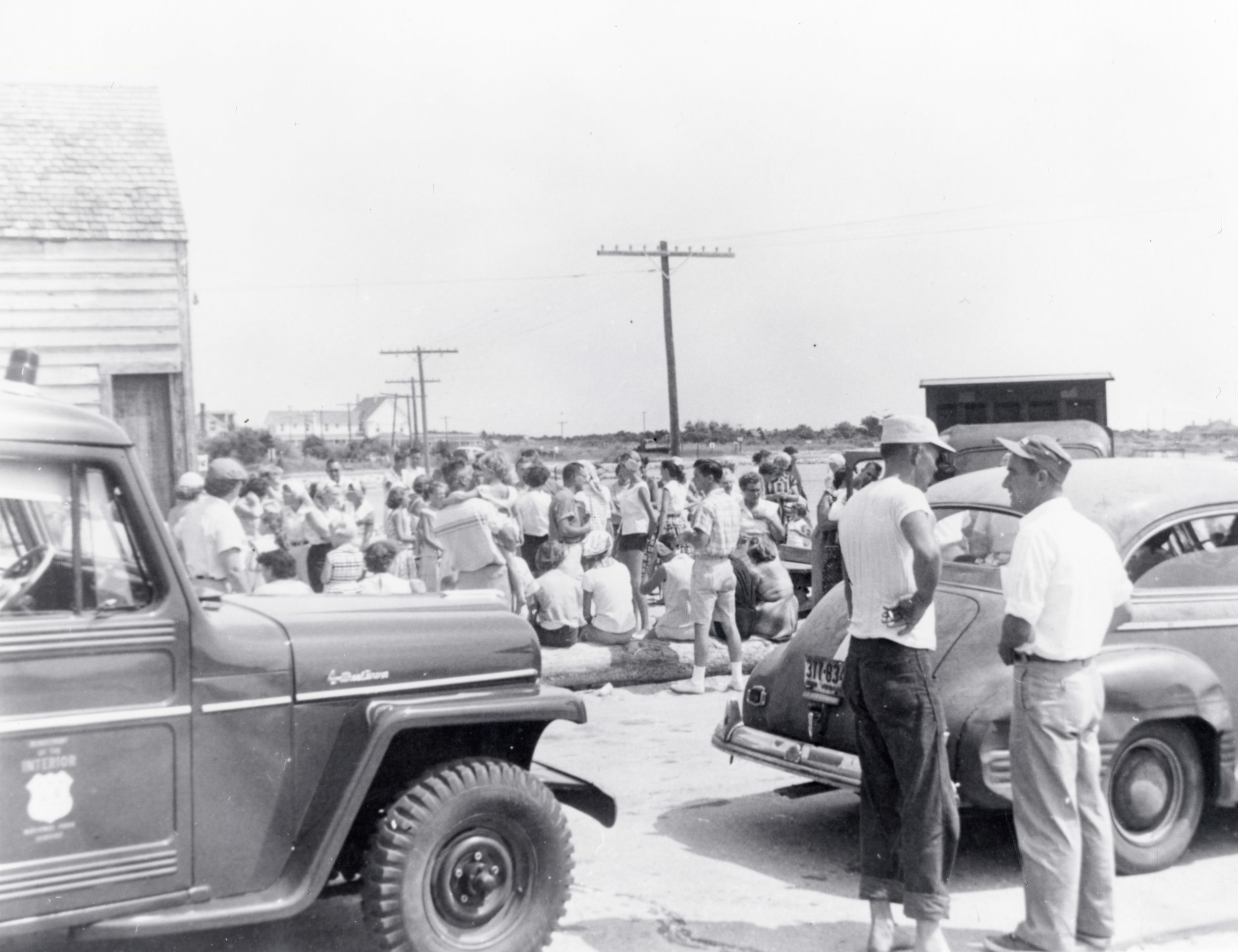
Listen
Read
Ellen Cloud talks about her father running the Aleta Mail Boat between Ocracoke and Atlantic, and her memories of riding the route as a child and playing a game to see which passengers would get sea sick.
Captains Elmo Fulcher and George O’Neal took turns running the mail boat Aleta, a “work horse” vessel that plied Pamlico Sound between Ocracoke and Atlantic twice a day, every day, for almost fifteen years. Aleta began her career as a mail boat in 1923, running the route with Captain Howard Nelson from Atlantic to Morehead City until roads were built in the 1930s. Aleta began the Ocracoke – Atlantic route in 1938 with Captain Wilbur Nelson, and Elmo Fulcher as crew.
During World War II, according to Fulcher’s daughter Ellen Cloud, the Aleta delivered freight, mail, and passengers for the military and civilians alike, slowly crossing the inlet “from Portsmouth to Ocracoke as her captain watched enemy subs surface just yards away.”
Fulcher and O’Neal bought the boat, secured the government contract, and continued the Ocracoke – Atlantic route from 1944 – 1952.
Alternating weeks, Nelson or Fulcher would depart Ocracoke at 6:30am and arrive in Atlantic around 10:30 am, navigating by pocket watch when the fog was thick. There they would meet the mail truck, as well as a passenger bus, that arrived in Atlantic from Morehead City. After loading, the Aleta would depart Atlantic at 1pm, returning to Ocracoke by 5pm.
Two stops were made en route: one in Cedar Island and the other in Portsmouth. In 1948 Portsmouth had only fifteen inhabitants at the time (Killebrew 1948). Because Portsmouth lacked a deep water anchorage, resident Henry Pigott poled a “shove skiff” out each day to meet the Aleta and exchange mail, freight, and passengers. He’d also give the captain a grocery list, to be filled by Ocracoke merchants and delivered by the mail boat to Portsmouth on the very next day. Pigott, one of last residents and the last African American on Portsmouth, was paid $50 a month for this service.
Learn More
Bedwell, Dorothy Byrum. “Portsmouth, Island with a Soul.” 1984, EIS Publications.
Garber, Pat. “The Mail Boat Aleta: Ocracoke’s Lifeline.” Coastal Review Online, 2 March 2015.
Killebrew, Charles S. “Boat Hauled Mail, More.” News and Observer, February 1, 1948.
Price, Woodrow. “The Aleta Carries Anything.” News and Observer, August 12, 1951.
The Aleta carried as many as 60 passengers, piled in the cabin, on the bow, stern, and top deck. She also carried freight, including groceries, packages, and fish. “Why only last week I carried three sheep to Atlantic from Ocracoke,” Captain O’Neal told the News and Observer in 1948.
The Aleta was Ocracoke’s “most solid link with the outside world,” (Price 1951). She typically missed only two or three days per year due to bad nor’easters or hurricanes. The arrival of the mail boat was the “big event of the day” (Goerch 1956), as residents gathered around the dock to see who or what was arriving. Sometimes letters were read out loud by recipients to neighbors gathered at the landing. Mail Boats were “central to coastal communication” (Garber 2015).
The 42-foot round-stern Aleta was built in Atlantic in 1923 by famed craftsman Ambrose Fulcher [J.M. Brown said Ed Willis of Sea Level built it for Wilbur Willis]. Constructed for the purpose of hauling mail, the Aleta was named after owner Howard Nelson’s sister. After Nelson sold her, she briefly ran booze during prohibition until seized by federal agents and auctioned off. Dee Mason of Atlantic used as a fish buy boat before she resumed her career as a mail boat from Ocracoke to Atlantic in 1938.
When the Aleta was retired from the postal service, Elmo Fulcher bought out George O’Neal’s share and turned her into a commercial fishing boat, harvesting shrimp in Pamlico Sound until his death in 1979.
“Never a day went by but what my father left the supper table and went directly to the Aleta to wash her down, paint, mend net or tinker with the engine,” recollected Ellen Cloud. “My mother would smile…and say, “He’s got to go tell her goodnight.”
The Aleta came to rest on the bottom of South River in Carteret County.
Mail boat contracts with the United States Postal Service ran for four-year periods. Nelson and Fulcher stopped running the mail in 1952. The Dolphin, run by Ainslee O’Neal, was the last mail boat to operate between Ocracoke and Atlantic, until the water-born route was discontinued in 1964.
Before the advent of gas engines for boats in the early 1900s, mail was transported by sail from Beaufort to Straits, carried by land from Straits to Smyrna, and then by sail from Smyrna to Ocracoke, making stops along the way.



